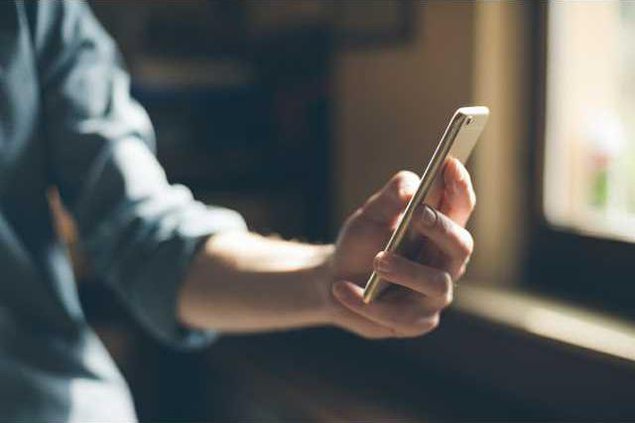Digital assistants like Siri and Alexa are milestones of modern convenience at the touch of a button or the utterance of a "Hey, Siri!" the assistants can play music, order pizza, answer a simple question or tell a joke.
But, as some media critics point out, these assistants also aren't secure, leaving users, who are often logged into the services via an app, vulnerable to hacking, identity theft and nebulous eavesdropping.
While many assistants most notably, Amazon's standalone speaker-based assistant, Alexa are voice-activated, calibrated to listen specifically for their names, it's unclear how much the assistants listen and how the conversations they overhear are used, if at all. It's widely known that Google keeps a dated archive of words and phrases users say. Facebook, too, listens at all times via smartphones.
To some, like Gizmodo's Alex Cranz, that insecurity is a trade-off for the enormous convenience of using a digital assistant even if it is something to be aware of.
"Alexa is burrowing itself deeper and deeper into owners lives, giving them quick and easy access not just to Spotify and the Amazon store, but to bank accounts and to do lists," Cranz wrote. "I, and many people in my generation and younger, do not value privacy. We willingly sacrifice it, often for popularity on social networks. And now for convenience sake within the Internet of Things."
But for others, like Slate's Will Oremus, the insecurity ups the creepiness factor on an imperfect platform. In a lengthy article dedicated to the topic, Oremus spoke of how Alexa interrupted a conversation between him and his wife with an impromptu, bizarre joke: "I held the door open for a clown the other day. I thought it was a nice jester."
"In retrospect, the disruption was more humorous than sinister," Oremus wrote. "But it was also a slightly unsettling reminder that Amazons hit device works by listening to everything you say, all the time."
Regardless of whether users are carefree about digital eavesdropping or totally creeped out by it, there's a relatively easy solution for smartphone users, at least.
To stop digital eavesdropping, simply disable an app's use of the phone's microphone under the phone's settings:
Apple
1. Go to the settings menu
2. Select the app in question (Facebook, Skype, etc.)
3. Turn off the microphone
Android
1. Go to the settings menu and select "Personal"
2. Select "Privacy"
3. Choose "Permissions"
4. Choose "Microphone" and turn it off
For Google users wishing to delete the recordings Cortana makes of conversations, users should visit history.google.com, tap the hamburger icon and select "Voice and Audio Activity" to review or delete audio files.
But, as some media critics point out, these assistants also aren't secure, leaving users, who are often logged into the services via an app, vulnerable to hacking, identity theft and nebulous eavesdropping.
While many assistants most notably, Amazon's standalone speaker-based assistant, Alexa are voice-activated, calibrated to listen specifically for their names, it's unclear how much the assistants listen and how the conversations they overhear are used, if at all. It's widely known that Google keeps a dated archive of words and phrases users say. Facebook, too, listens at all times via smartphones.
To some, like Gizmodo's Alex Cranz, that insecurity is a trade-off for the enormous convenience of using a digital assistant even if it is something to be aware of.
"Alexa is burrowing itself deeper and deeper into owners lives, giving them quick and easy access not just to Spotify and the Amazon store, but to bank accounts and to do lists," Cranz wrote. "I, and many people in my generation and younger, do not value privacy. We willingly sacrifice it, often for popularity on social networks. And now for convenience sake within the Internet of Things."
But for others, like Slate's Will Oremus, the insecurity ups the creepiness factor on an imperfect platform. In a lengthy article dedicated to the topic, Oremus spoke of how Alexa interrupted a conversation between him and his wife with an impromptu, bizarre joke: "I held the door open for a clown the other day. I thought it was a nice jester."
"In retrospect, the disruption was more humorous than sinister," Oremus wrote. "But it was also a slightly unsettling reminder that Amazons hit device works by listening to everything you say, all the time."
Regardless of whether users are carefree about digital eavesdropping or totally creeped out by it, there's a relatively easy solution for smartphone users, at least.
To stop digital eavesdropping, simply disable an app's use of the phone's microphone under the phone's settings:
Apple
1. Go to the settings menu
2. Select the app in question (Facebook, Skype, etc.)
3. Turn off the microphone
Android
1. Go to the settings menu and select "Personal"
2. Select "Privacy"
3. Choose "Permissions"
4. Choose "Microphone" and turn it off
For Google users wishing to delete the recordings Cortana makes of conversations, users should visit history.google.com, tap the hamburger icon and select "Voice and Audio Activity" to review or delete audio files.








